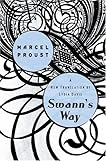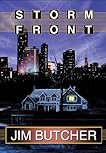Fat Karma: Health Care Bigotry
I got my first glimpse that I would be treated differently by the insurance industry and health care providers when I was turned down for insurance over 15 years ago. At 5'6", they wanted me to be under 200 lbs, and I weighed 205 lbs. I sent Blue Cross Blue Shield a letter asking them to reconsider, that I was a vegetarian, I was a meditator, I exercised regularly, that my blood pressure and cholesterol levels were quite normal. They relented, and agreed to give me insurance, but would not cover any health care having to do with weight loss, heart disease, blood pressure, or diabetes.
Years later, my indicators are still normal, but for a slightly elevated blood pressure, which is easily controlled. Fortunately, my work-provided insurance has improved for part-time employees, and I no longer need the gutted cheap insurance. Fortunately also I like my job, because I could not get insurance otherwise, and some jobs actually weed potential employees out according to these same health factors.
My own experiences of fat bigotry from health care providers has been subtle, but I have heard some horror stories from others. A few years ago I met a woman who was forced to walk around with a broken tailbone, in constant pain. The surgeon she spoke to would not do the surgery because he said she was too fat. He would, however, recommend bariatric surgery. That, well that is a horror story in itself. Don't believe the soft-light commercials in which they say,"It's time." At least 1 in 100 people die from bariatric surgery and its complications, and it's hard to pin down the actual rate because deaths further in time from the surgery are not included.
Think about this procedure that has been touted lately as the life-saver for obese people. Because you know they tell us we're going to die if we don't lose weight. Our life will be shortened. What they don't say about that is people with diabetes experience a shortened life, sometimes. People with heart disease experience a shortened life, sometimes. People with obesity don't always have diabetes or heart disease. And what is it supposed to shorten my life by? 3 years? 5 years? So that means I'll live to be 85 barring accidents, because my family lives into the upper 80s? Meanwhile, people who undergo this surgery lose weight because they must necessarily starve themselves or experience severe consequences. This is a surgery that deliberately cripples the natural functions of a person's body for the rest of their life. It's an induced health dysfunction, and doctors recommend it.
A doctor told a good friend of mine that her 17 year old daughter "is a good candidate for bariatric surgery." My eyes about popped out of my head. I was sure this not only had to do with fat bigotry, but with class. Did this doctor think because this family was poor, they wouldn't know any better? Fortunately she mentioned it to me so I could tell her the horror stories of people dying from intestinal blockages, or from beriberi disease. Complications from this surgery last the rest of your life, and for the rest of your life, you must take steps not to be vitamin-deficient because of the tiny amounts of food you have to eat. Complications also cause the need for follow-up surgeries.
Oh, but it cures diabetes, you say? Well, duh! The patients aren't eating the calories, so their fat is being consumed. Of course there is a reversal. I once read the blog of a woman who was happy she'd done the surgery because she believed it saved her life, this in spite of the fact she had severe complications which almost took her life, and necessitated further surgery. Oh, and when they say it cures diabetes, this is from studies that only looked at short term followup, not long enough to determine a cure, really.
Whew, enough about that evil surgery disguised as good.
As I mentioned, the difference in treatment I've experienced from health care providers has been more subtle. It ranges from a doctor taking one look at me and saying, "I want you to take a cholesterol test," to doctors/nurse practitioners saying, "You need to exercise more." When I say I do, they've said, "Well you need to walk faster." I think part of this is not just fat bigotry and their assumptions that I don't do these things, but the way an HMO is set up and the way doctors think. As I learned from How Doctors Think, they will latch onto a diagnosis and stick with it, disregarding other possible illnesses. In this case, they go with the most obvious defect, and hammer the protocols. They don't ask me questions.
Most recently, I suspect my new physician's assistant thinks I am non-compliant and/or stupid and/or lying. With my newly diagnosed high blood pressure (now that the defining numbers have been lowered), I wanted to be sure it wasn't Sudafed that was sending my numbers up, so I delayed the bp medication for 3 weeks while I stopped taking Sudafed, and we worked out that I could try Benadryl at night instead. That worked fairly well, and I could sleep, but my blood pressure didn't lower, so I started on the blood pressure meds. (Initially I was never told Sudafed could raise a person's blood pressure.) I told her I wanted to go back to Sudafed, as it hadn't made a difference. She reluctantly agreed, and refused to give me a stronger dose, writing on my record, "Lay off the Sudafed, it raises your blood pressure!" Seriously, did she think I was lying when I said I tested my blood pressure before and after taking it? Or did she even pay attention to me? If she thinks I'm being non-compliant, does she even realize she may be allowing bias to affect her judgment? At least she ordered a full blood workup for me, as that unearthed anemia and vitamin D deficiency. I believe I've been suffering from anemia for almost 3 years, but my previous nurse practitioner termed my worsening monthly conditions as normal. I'm not sure why, but I think she ordered the tests in part because I complained about doctors always telling me to exercise without asking questions about my health habits. Am I making this up, that her views of me have to do with my fat? Probably not.
Well here, watch this. It pretty much covers the kinds of bias a fat person experiences from health care providers. I noticed though, even this video fell a little bit short in its advice to doctors: nowhere do they mention the need to recognize the good health habits a fat person already has. It seems they didn't root out the common assumption that we haven't any good health habits.
Earlier posts in this series:
Introduction
It Starts Young











![Parable of the Sower [Audiobook] (CD)](http://ecx.images-amazon.com/images/I/21WWccr877L._SX106_.jpg)





